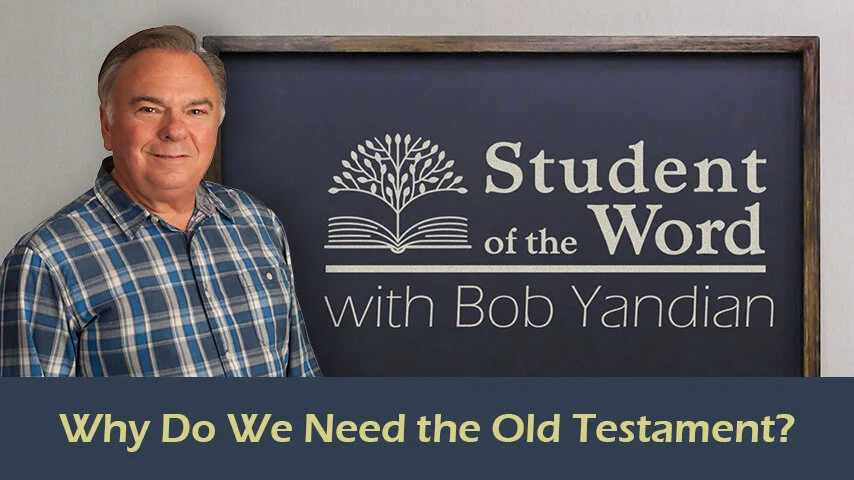The Blood Covenant Part 1
The Life is in the Blood
“But now He has obtained a more excellent ministry, inasmuch as He is also Mediator of a better covenant, which was established on better promises. For if that first covenant had been faultless, than no place would have been sought for a second.” Hebrews 8:6-7
We need to study the Old Testament in light of the New Testament.
With covenants, we should study the New Testament then compare it to the Old Testament.
If I told you, “I just bought a better car.” You would have nothing to relate it to until you saw my other car.
You can’t study covenants without walking away with a better understanding of the importance of the blood of animals and the blood of Jesus.
a. Genesis 15:18 “The same day the Lord made (cut) a covenant with Abram saying, to your descendants, I have given this land…”
b. “Covenant” in Hebrew means “Berith” - “to cut until blood is shed.”
c. When God wanted to become seriously involved in a person’s life, He entered into covenant with them.
Noah (Genesis 6:18 - before the flood. Genesis 9:9 - after the flood).
Abraham (Genesis 15:18).
Isaac and Jacob ( Exodus 2:24).
d. The Old and New Testaments are really covenants. The Old Testament is not bad - it is good. The New Testament is better.
An understanding of the blood of animals and the blood of Jesus will help us understand our covenant relationship with the Father.
a. Too much can be made of uses of the blood. Examples are claiming, pleading, drawing bloodlines, etc.
b. But not enough can be made of the meaning of the blood of Jesus.
c. Blood represents cleansing of sins for believers as well as an unbeliever and our entering into a relationship with God.
d. Blood represents life. The blood covenant represents the mingling of two lives.
What is a Covenant?
Blood covenant is something better known in the eastern world.
It is the basis for many customs and laws we take for granted.
There were four ways to enter into a blood covenant with another person.
a. Cut the palms of the hands and join the hands together.
The modern handshake came from this.
This was the most popular method.
b. The same cut in the hands could have the blood mingled into a cup of wine for both to drink.
This showed the two lives being a part of each other.
Although this was popular, God forbid the drinking of blood in the word.
The drinking of another’s blood eventually led to cannibalism.
a. If drinking his blood is good, I will eat his heart and have his courage.
b. I will eat his arms and have his strength.
c. Cut the wrists and mingle the blood by rubbing the two wrists together.
d. An animal’s blood could be shed in place of the two joining in covenant.
This is God’s way in the Old and New Testaments.
This is substitution.
The Importance of the Blood
“Every moving thing that lives shall be food for you. I have given you all things, even as the green herbs. But you shall not eat flesh with its life, that is, its blood.” Genesis 9:3-4
Eating the animal was accepted, but the blood had to be drained.
The animal could be eaten, but the life of the animal could not.
The life of the animal was in the blood.
“‘And whatever man of the house of Israel, or of the strangers who dwell among you, who eats any blood, I will set My face against that person who eats blood and will cut him off from among his people. For the life of the flesh is in the blood, and I have given it to you upon the altar to make atonement for your souls; for it is the blood that makes atonement for the soul.’” Leviticus 17:10-11
We often think that blood is just blood. It is the lifeblood.
When blood was mingled in covenant, it was the joining of two lives.
There are no longer two lives, but ONE.
a. To come against your covenant brother or sister is to come against YOU.
b. You owe each other protection.
Included in the covenant is your:
a. Family
b. Occupation
c. Possessions
d. Assets
e. Liabilities
When blood was mingled so were families, possessions, assets, and liabilities.
a. Children in the womb or yet to be conceived could be part of the covenant.
b. Names were swapped. This is right of attorney - full trust.
Money saved could be taken into the covenant.
Money yet to be made or credit could be taken into the covenant.
Our Covenant With God
Through the substitutionary work of Jesus on the cross, the shedding of His blood for us - we are covenant partners.
a. All of God’s liabilities belong to us- He has none.
b. All of God’s assets belong to us- God only has assets.
c. All of our liabilities belong to God - All we have are liabilities.
d. All of our assets belong to God - we have none.
Through covenant, we have gained as our own, all that God has.
a. We have access to God’s righteousness.
b. We have rights to God’s provisions.
c. We have use of His name.
d. Everything God has done belongs to us.
e. All God has yet to do belongs to us.
f. We will protect God - He doesn’t need it.
g. God has to protect us - a full-time job.
To the natural mind, covenant with God is a bad deal for God.
If anyone has ever come to live with you, your lifestyle changes
There is only one reason you would change and sacrifice your life - John 15:13
How Do I Get In On This Covenant?
It would be stupid to turn down a millionaire who wanted to be in covenant with you.
a. He is willing to give us access to all of His wealth as well as His name and wealth yet to be made.
b. He is willing to open His home and let us live off of all He owns.
c. It would be stupid to say, “I would rather live with my debt.”
We enter into covenant with Jesus by faith.
a. We eat of His flesh by faith.
b. We drink His blood by faith.
c. He is now one with us and us with Him.












